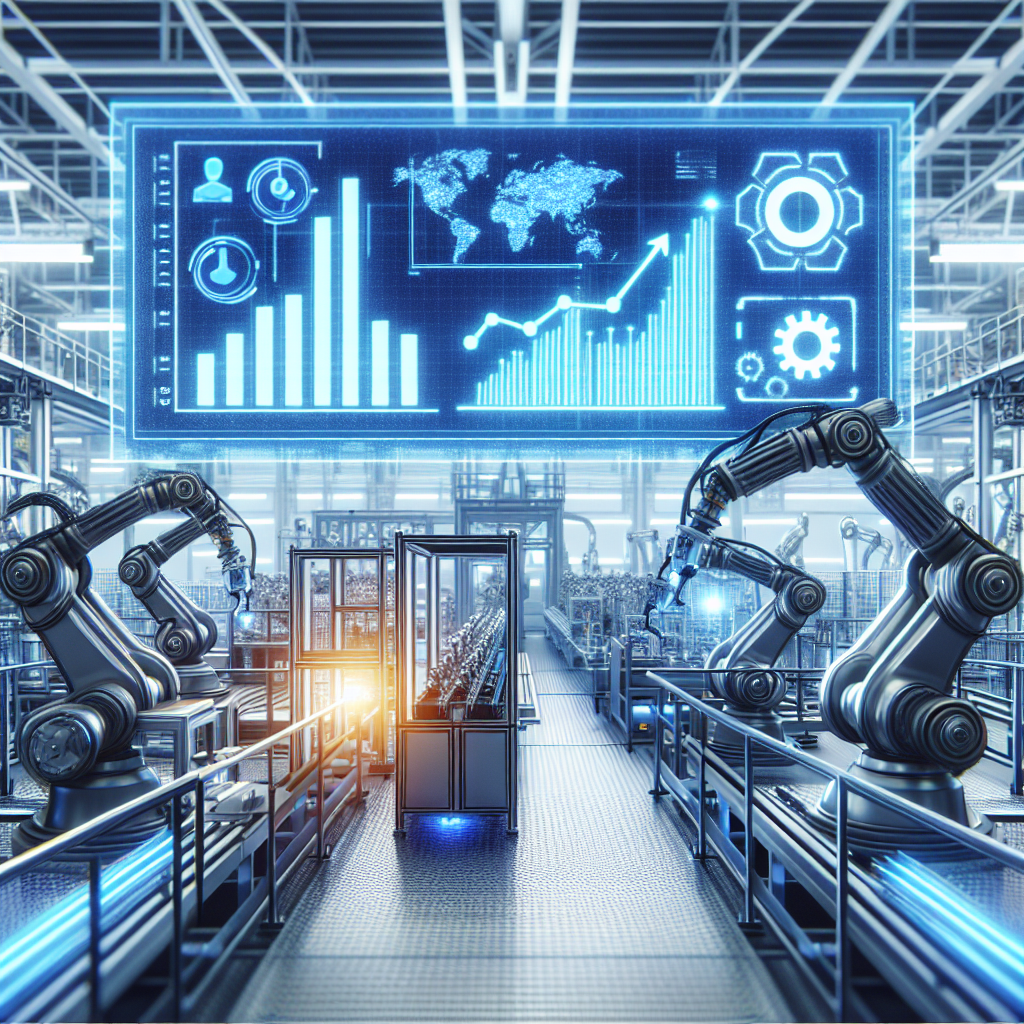Artificial intelligence (AI) has revolutionized the manufacturing industry by improving production processes and increasing efficiency. With the ability to analyze large amounts of data, AI can help manufacturers optimize their operations, reduce costs, and improve product quality. In this article, we will explore how AI deployment in manufacturing is transforming the industry and the benefits it brings.
AI Deployment in Manufacturing
AI deployment in manufacturing involves the use of advanced algorithms and machine learning techniques to automate and optimize various processes. From predictive maintenance to quality control, AI can be applied across different stages of the manufacturing process to enhance productivity and efficiency.
One of the key areas where AI is making a significant impact is predictive maintenance. By analyzing sensor data and historical maintenance records, AI algorithms can predict when equipment is likely to fail and recommend proactive maintenance actions. This helps manufacturers avoid costly downtime and reduce maintenance costs.
Another important application of AI in manufacturing is quality control. AI-powered image recognition systems can inspect products in real-time, detecting defects and anomalies that may not be visible to the human eye. This ensures that only high-quality products are shipped to customers, reducing the risk of recalls and improving customer satisfaction.
AI can also be used to optimize production scheduling and resource allocation. By analyzing production data and demand forecasts, AI algorithms can recommend the most efficient production schedule and allocate resources accordingly. This helps manufacturers maximize production output while minimizing costs.
Benefits of AI Deployment in Manufacturing
The deployment of AI in manufacturing offers several benefits to companies looking to improve their production processes. Some of the key benefits include:
1. Increased productivity: AI can automate repetitive tasks and optimize production processes, leading to increased productivity and efficiency.
2. Cost savings: By reducing downtime, improving quality control, and optimizing resource allocation, AI can help manufacturers save costs and improve their bottom line.
3. Improved product quality: AI-powered quality control systems can detect defects and anomalies early in the production process, ensuring that only high-quality products are delivered to customers.
4. Enhanced decision-making: AI algorithms can analyze large amounts of data and provide valuable insights to help manufacturers make informed decisions and optimize their operations.
5. Competitive advantage: Companies that embrace AI deployment in manufacturing can gain a competitive advantage by improving their processes and delivering high-quality products to customers.
FAQs
Q: What are some common challenges in deploying AI in manufacturing?
A: Some common challenges in deploying AI in manufacturing include data quality issues, lack of skilled workforce, and resistance to change. It is important for companies to address these challenges and invest in training their employees to ensure the successful implementation of AI technologies.
Q: How can AI help manufacturers improve their supply chain management?
A: AI can help manufacturers optimize their supply chain by analyzing demand forecasts, inventory levels, and production schedules to ensure timely delivery of products. By using AI-powered algorithms, manufacturers can reduce lead times, minimize stockouts, and improve overall supply chain efficiency.
Q: What are some best practices for implementing AI in manufacturing?
A: Some best practices for implementing AI in manufacturing include defining clear objectives, collecting high-quality data, involving stakeholders in the process, and continuously monitoring and evaluating the performance of AI algorithms. It is also important to invest in employee training and create a culture of innovation to ensure the successful deployment of AI technologies.
In conclusion, AI deployment in manufacturing is transforming the industry by improving production processes, increasing efficiency, and enhancing product quality. By embracing AI technologies, manufacturers can gain a competitive advantage and optimize their operations to meet the demands of the modern market. It is important for companies to address common challenges, invest in training their workforce, and follow best practices to ensure the successful implementation of AI in manufacturing.

